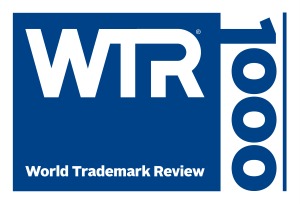After years of debate and revisions in both houses, the Corporate Transparency Act of 2019 (“CTA”), Congress’ most ambitious anti-money laundering and anti-terrorism financing legislation in years, was enacted on January 1, 2021. Passed in December 2020 with bipartisan support as part of the annual National Defense Authorization Act, the CTA contains significant implications for small business owners, private companies, and investors.
The CTA requires new and existing entities to report beneficial ownership information to the Financial Crimes Enforcement Network (“FinCEN”), creates a beneficial ownership database, and institutes civil penalties, fines, and criminal sanctions for noncompliance. The CTA also establishes reporting deadlines and instructs FinCEN to promulgate regulations by January 1, 2022.
Broadly applied, the CTA covers all corporations, limited liability companies, and similar entities filed under the laws of a U.S. state or registered to do business in the United States. However, it exempts a wide range of entities, including publicly traded corporations, government agencies, nonprofit organizations, insurance companies, public utilities, and any entity owned by an entity otherwise exempt. The CTA also exempts privately held corporations that meet the following requirements: at least (i) 20 full-time U.S. employees, (ii) over $5 million in annual gross receipts or sales, and (iii) an operating physical presence in the United States.
All nonexempt entities, or “reporting companies,” must submit beneficial ownership information to FinCEN, which will hold that information in a secure, nonpublic database. The CTA defines “beneficial ownership information” as (i) the beneficial owner’s full legal name, (ii) date of birth, (iii) current residential or business street address, and (iv) unique identification number (“UIN”). Beneficial owners—defined as any individual who owns or controls at least 25 percent or exercises “substantial control” over the reporting company—can satisfy the UIN requirement with a nonexpired U.S. passport, state identification document, or driver’s license. Foreign individuals who possess none of these documents may use a nonexpired foreign passport.
The reporting requirements under the CTA become effective once FinCEN finalizes its regulations, or no later than January 1, 2022. All reporting companies formed after that date must provide beneficial ownership information to FinCEN at formation. Preexisting reporting companies have two years from the effective date of the regulations to submit beneficial ownership information to FinCEN. After the effective date of the regulations, all reporting companies must report any change in beneficial ownership to FinCEN within one year of that change. Failure to report by the statutory deadlines, or submission of false or fraudulent information, may result in civil penalties of up to $500 per day, a fine of $10,000, and two years’ imprisonment.
Should you have any questions about this guidance or any other matters related to the CTA, please contact Robert Gerber, Wesley Nissen, Peter Miles, or your Neal Gerber Eisenberg attorney.
—
The content above is based on information current at the time of its publication and may not reflect the most recent developments or guidance. Neal Gerber Eisenberg LLP provides this content for general informational purposes only. It does not constitute legal advice, and does not create an attorney-client relationship. You should seek advice from professional advisers with respect to your particular circumstances.













